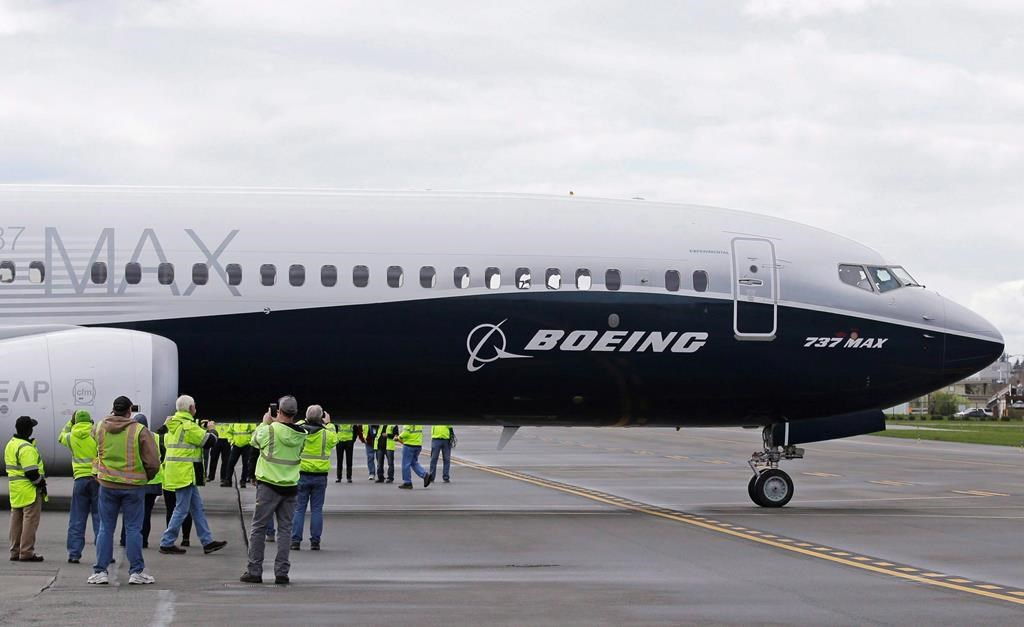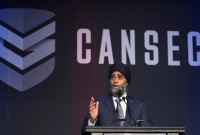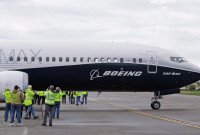Support strong Canadian climate journalism for 2025
Boeing Co. has no plans to back down in its trade dispute with Canadian rival Bombardier — a high-stakes, cross-border conflict that the U.S. transportation giant says could have long-term ramifications for the future of the entire aerospace sector.
The potential consequences of the Boeing-Bombardier standoff extend beyond any single deal — especially for Boeing itself, said Marc Allen, president of Boeing's international division.
"In Canada, we face a situation with a competitor, an emerging competitor, that has, yes, long received government support — but that just went beyond the pale in 2016," Allen said in an interview with The Canadian Press.
"That aggressive move had to be addressed if we really believe in establishing a global architecture that will create the greatest prosperity for our industry and for us as a company in the long term."
Boeing triggered the dispute earlier this year when it complained that Montreal-based Bombardier was selling its CSeries passengers jets to U.S.-based Delta Air Lines at an unfairly low price, thanks to loans and grants from both the province of Quebec and the federal government.
When the U.S. Commerce Department and its associated International Trade Commission agreed in May to investigate the complaint, the Trudeau government fired a warning shot, threatening to scrap its multibillion-dollar "interim" plan to buy 18 of Boeing's Super Hornet fighter jets.
"The interim (fighter) procurement requires a trusted industry partner," Defence Minister Harjit Sajjan said on May 31, in what amounted to the government's strongest public words on the dispute to date.
"Our government is of the view their action against Bombardier is unfounded. It is not the behaviour we expect of a trusted partner and we call on Boeing to withdraw it."
Boeing initially hoped to resolve the dispute through diplomacy, Allen said, and convinced the U.S. government last year to send an official note to Canada, known as a demarche.
"There was just no response," Allen said. "It was clear that no progress was going to be made, and that if any progress was going to be had, it would have to be through some form of enforcement action."
Boeing knew the dispute would spark a strong reaction from Ottawa, Allen continued, but company executives decided that it needed to take action in order to protect the firm's broader interests.
And while the American aerospace titan — which also happens to employs thousands of people across Canada — would still prefer finding a resolution through more amicable means, Allen said it is singularly focused on achieving its objectives.
"There's certainly no desire to do something that any one of our customers or any one of our sovereign-state partners would take offence at," he said. "But the effort to enforce our interests in an even playing field in aerospace is a very large interest."
Some have questioned why Boeing is being so aggressive; the CSeries planes manufactured by Bombardier do not directly compete with the U.S. company's existing passenger jets.
But Allen said the situation has echoes of the rapid ascent of Airbus, the European consortium that was formed in the 1970s and has since grown to become the second largest aerospace company in the world, and Boeing's most formidable rival.
"We watched another competitor come up and enter the market in a very similar fashion," he said. "And in retrospect, I think that you find across the board in U.S. aerospace, people … who would have said they wish they had confronted the uneven playing field."
Boeing and Airbus have been locked in their own trade dispute at the World Trade Organization for more than a decade.
Many defence officials and industry representatives have circled Sept. 25 on their calendars; that's the date the U.S. Commerce Department is scheduled to release the preliminary findings of its investigation into Bombardier.
But Allen said he expects the dispute to drag into next year, as U.S. officials finalize their findings and decide whether to level fines or tariffs against the Canadian manufacturer.
That could force the federal Liberal government into making a decision about whether to move ahead with the Super Hornet purchase, or abandon it before a final decision is reached.
The Trudeau government announced in November its plan to purchase the planes to temporarily fill a critical shortage of fighter jets until a full competition can be run to replace the aging CF-18s.
The government said at the time that the Super Hornet was the only aircraft able to meet its immediate requirements, including being a mature design compatible with U.S. fighters.
Since the Boeing-Bombardier spat erupted, however, it has largely cut off direct contact with the U.S. company and says that all options for filling the fighter-jet shortage are on the table.
Many defence experts, including 13 retired air force commanders, have criticized the plan to purchase interim Super Hornets and called for an immediate competition to replace the CF-18s.




Comments